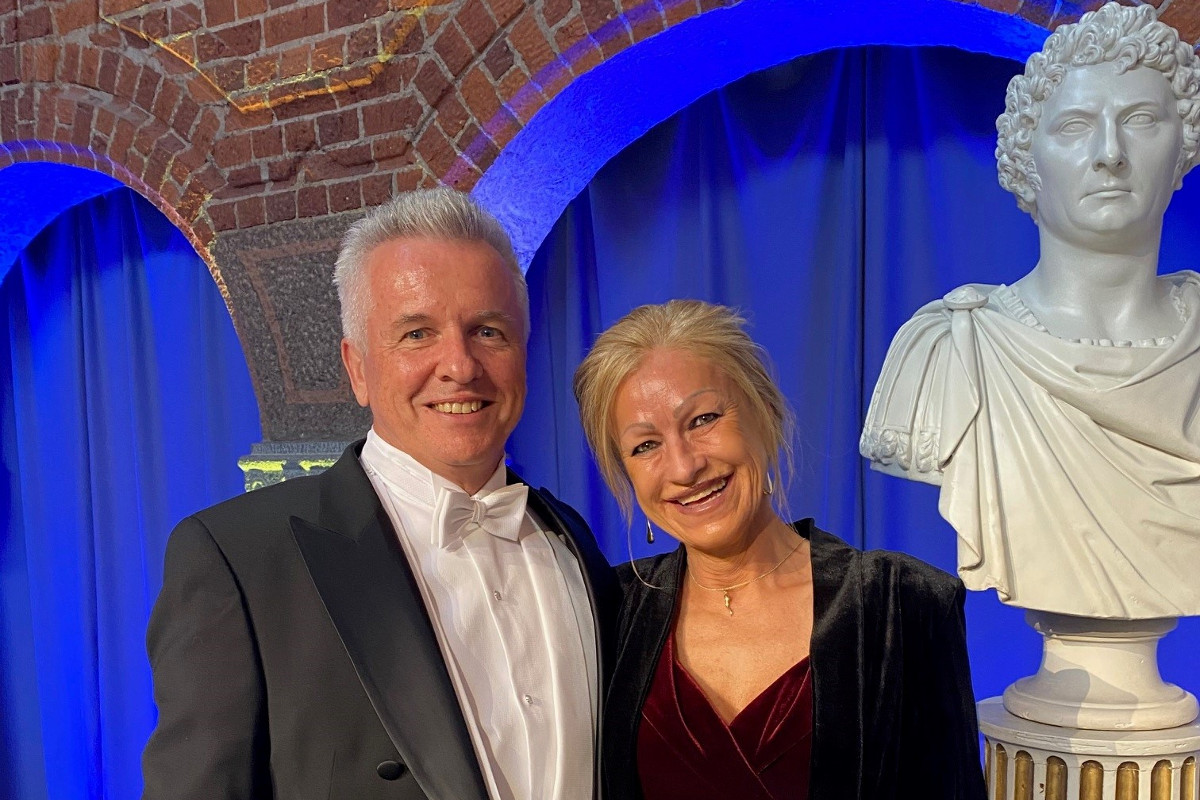Professor Tony Simons one of five international experts bestowed the honorary title of ‘Lifetime Fellow of Royal Swedish Academy of Agriculture and Forestry’

Sweden is well renowned for its appreciation of science with some of the oldest science academies in the world, in addition to the annual awarding of the Nobel Prizes. Stunningly, the country has a disproportionately large number of patents and scientific inventions to its name.
The global positioning system (GPS), the zip, the flatscreen monitor and oat milk may not be as famous as Alfred Nobel’s dynamite invention but have all significantly helped change the world. Furthermore, we rely on the Swedish scientist Carl Linnaeus for the system for scientific naming of all living plant and animal species. Sweden is fifth in the world for the highest percentage of GDP spent on Research and Development (R&D), third country in the world for the highest number of scientists per million inhabitants, and first in the world for the highest proportion of individuals working in R&D who are scientists as opposed to being technicians.
Sweden’s high appreciation for science is both historical and recent. On June 12, 2022, this was evident in the awarding of fellowships and prizes by the Swedish King Carl XVI Gustav and Queen Silvia. In a six-hour ceremony and banquet held at the prestigious Stockholm City Hall, the work of both Swedish and international scientists and their respective institutions was heralded with great fanfare and accolades. The Center for International Forestry and World Agroforestry (CIFOR-ICRAF) was among the select group of international institutions recognized for its great contributions to international research and Swedish scientific cooperation.
CIFOR-ICRAF Executive Director, Prof. Tony Simons, was one of five international experts who were bestowed the honor of ‘Lifetime Fellow of Royal Swedish Academy of Agriculture and Forestry (KSLA)’ this spring. Though the honor was originally bestowed in 2021, COVID delayed the in-person festivities for 18 months.
The Chairperson of the CIFOR-ICRAF Board, Professor Getachew Engida, who was formerly the Deputy Director General of UNESCO, commented with immense pride on the recognition that CIFOR-ICRAF and Tony Simons received from the Royal Swedish Academy. He said: “In an era of fake news, knowledge power grabs, and self-interested narratives, it is pleasing that the evidence-supported, nature-based and long-term work that we engage in is so prominently highlighted by KSLA. Tony Simons, along with Robert Nasi, has brought the research, development, policy and delivery dimensions of our scientific and operational work to new heights following the CIFOR-ICRAF merger in 2019.”
Dr. Lisa Sennerby-Forsse, the former Vice-Chancellor of The Swedish University of Agricultural Sciences (SLU) and former President of KSLA – who was also previously the Deputy Chair of the CIFOR-ICRAF Board – attended the event. On the receipt of the fellowship by Prof. Simons, Lisa remarked: “Tony has a real gift to help explain complex science in powerful verbal imagery in his seminars and presentations, and this has really benefitted the communication and understanding of landscapes which are so fundamental to more sustainable management and wiser stewardship of agricultural, forest and other land uses.”
Alongside its excellence in science, Sweden ranks number one in Europe on the Gender Equality Index. One third more women (42%) than men (31%) go on to Tertiary education in Sweden, and 56% of all Board Members of Research Funding Organizations are women. Moreover, 52% of Government Ministers are women. Wanjiru Kamau-Rutenberg, the former Director of African Women in Agricultural Research and Development (AWARD) Gender Program based at CIFOR-ICRAF, credited Tony with similar priority attention to gender balance and equity: “Tony has been a real champion for Science in Africa but more specifically, a champion for women in Science across the continent. Tony’s support of AWARD has led to a notable strengthening of the pipeline of female scientists as well as adoption of gender responsive research practices across the continent. AWARD owes its success to 12 years of Tony’s visionary support, a real testimony to his principled commitment to inclusion and fairness in science and management.”
The Royal Academy event coincided with the Stockholm +50 event the week prior. Simons shared his views on the juxtaposition of the two events: “Human prosperity can be measured in two main ways: standard of living and quality of life. The 300-year-old Swedish Academies and the 50-year-old first-ever UN conference on the Human Environment demonstrates how important nature is to Swedish society, and how long-term Sweden’s perspectives on science, research, technology and innovation are.”














